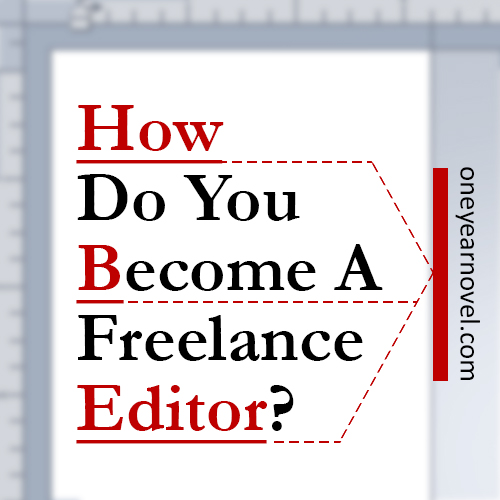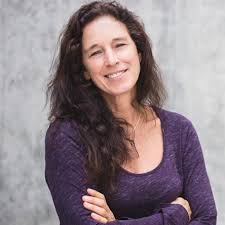How Do You Become a Freelance Editor?
Read Part 1, “Is Freelance Editing a Good Career for You?”
** Susanne is offering One Year Adventure Novel students $100 off her course: “How to Make a Great Living as an Editor”! (Coupon code: “OYAN”)
She also offers would-be editors personal mentoring and consulting. If you are an OYAN student, her rate is only $50/hour (regular rate is around $120/hour)!
Do you have good proofreading skills? Can you spot a typo in a paragraph without half trying? Can you see how to tighten a sentence, make a paragraph flow better, improve the organization of a manuscript? If you can, you should seriously consider becoming a freelance editor. Here’s how to get started.
Step 1: Weigh the Costs.
It may not cost much money to start editing, but it is a commitment of time—a big one. You may also need to pay to take some online courses to become a proficient editor. (Check out the online copyediting courses and certification offered by UC Berkeley and Editcetera.) While online courses won’t cost anywhere near the amount of getting an academic degree, it’s still a cost. And the time you take to learn to edit takes time away from a paid job or family time.
Editing isn’t something you can just jump into and try, like a job at a supermarket. You really have to be at a proficient level to begin marketing and selling your services. When you tell someone you are a freelance editor, you are promising you can deliver professional-quality work. Can you?
If you aren’t sure your editing is professional quality yet, you’ll need to spend a good chunk of time learning, then honing your skills, starting at the bottom to ensure you know what you’re doing and that you aren’t making embarrassing mistakes.
Editing is challenging because you often have no idea what things you don’t know. You may think a word is spelled correctly, but the only way you’ll know is if you look it up. Believe me when I say even professional editors (myself included!) discover they’ve been making mistakes they had no idea they were making. The quality of your editing work may already be great, but taking time to confirm that will give you confidence and peace of mind.
HOW I CAN HELP
When I started editing, I found it frustrating when trying to gauge my proficiency. I wished I had someone to check my work, to show me what I didn’t know. So I offer my help to new editors in a mentor capacity. I can check over an editing job you do, proofreading and commenting to show you what you missed and need to learn. My hourly rate if you are a student with The One Year Adventure Novel is only $50!
Or you can hire me for a more long-term mentoring relationship. For a monthly fee, I would review your work weekly for two hours, addressing specific editing questions you have. For instance, you might be struggling with understanding noun/verb agreements or modifiers. We would then follow that up with a one-hour phone or Skype call per week.
If you’re interested, contact me. Without a doubt, getting input from an experienced freelance editor is the best way to ensure you are at the top of your game. You will feel confident that you can stand by your work.
Step 2: Keep Writing.
Learn.
Read all the books you can get your hands on about how to write and how to edit. Attend writers’ conferences so you can polish your writing skills and meet other people in the business.
Write.
Consider writing magazine articles, short stories, or blog posts so you’ll have experience with all kinds of writing.
Self-edit.
Find or start a writers’ critique group so you can do some free editing to get experience. You will get feedback on what people find helpful and improve your own writing skills. Go over your manuscripts again and again, making them better every time. Get your manuscripts as polished and perfect as you can—right down to the spelling and punctuation.
Hire a Professional Editor.
Not only will this help you improve your own writing, you’ll get a good inside look at the kinds of things an editor does. You may even want to send your work to two or three editors to get a feel for different styles. Connect with these professional writers and ask them for feedback so you can see where you’re making mistakes. This is a terrific way to help you spot your weak areas, in lieu of hiring me to mentor you.
Get Published.
Do you intend to edit books? If you haven’t had several manuscripts accepted and published by paying markets, you might have a hard time convincing potential clients that you know what you’re doing. Many times clients will count on you to provide suggestions regarding where they can market their work.
In addition, the contacts you make at publishing houses through your writing can get you into editing for those houses. I often edit and critique for my publisher, and my agents have also referred me to other clients of theirs to edit their manuscripts.
Step 3: Evaluate and Plan.
You’ve weighed the costs and figured out what you need to do next. Now here are some areas in which you can evaluate yourself for even more insight.
Your Personality
Are you a self-motivated, organized, flexible person who can work well without supervision? Or, if left to your own devices, would you sleep in, call a friend, run errands, clean the house, or go shopping, and never get around to doing much work? If you struggle to stay on task, you need a plan.
Are you the kind of person who thrives on socialization? How well will you cope with working alone every day, having no coworkers to chat with? Again, if there’s a chance you will get lonesome or restless, you need a plan.
Are you excessively picky about details? No matter how good you are at evaluating a manuscript’s overall strengths and weaknesses, if your client finds typos, misspelled words, or errors in punctuation after you’ve edited a manuscript, those little oversights can make you look unprofessional. Commit to proofing your own edits!
Are you good at providing a balance of encouragement and helpful suggestions for improvement? If you’re not the “cheerleader” type, this might be a challenging vocation for you. How can you grow in the art of encouragement? Is there someone you could emulate who models this?
Your Setup
Do you have an office space where you can work without distractions? Do you have up-to- date computer equipment, email and Internet capability, the latest version of Microsoft Word, and a good virus scan program? Are you willing and able to check your email several times a day?
You’ll need to keep good records you can give to an accountant at tax time, so a program such as Quickbooks is very helpful (that’s what I use). Don’t forget that you may need time to become proficient using it.
You’ll also need a good way to keep track of your clients and all correspondence with them. I use LessannoyingCRM.com as my CRM (customer relationship management) program online. In my mentoring program, I help you with all these aspects of your freelance business.
Your Finances
Talk candidly with your family about money. You probably won’t make much for at least the first couple of years. If you can’t pay the bills just from editing, you may want to just do editing on the side until you have enough work to quit your day job.
Even after you’ve been freelancing for a while, the work is often “feast or famine.” You’ll have some months when you barely have time to breathe, and other months when you’ll wonder how you’re going to pay the electric bill. If you don’t have a steady income that can cover the expenses on slow months, you could run into serious trouble.
Your Availability
If you have young children at home, don’t expect to make very much money editing because you won’t be able to devote much focused time to it. Editing takes concentration, which can be in short supply if you’ve got kids running around making noise and clamoring for your attention.
After all this evaluation, if you still believe you’d make a good freelance editor . . .
Step 4: Prepare.
Get the Right Reference Books.
Do you know what reference books are used by the industry you plan to edit for? For example, if you wish to edit authors’ manuscripts, do you know what style guide(s) and dictionary(ies) are used by book, magazine, and newspaper publishers today? (If you have an account on the OYAN Student Forum, see my handout for my recommended list of reference books. It’s under “Workshop Handouts and Presentations” on the “Summer Workshop & Reunion” board.)
Study the Reference Books.
Get into the habit of looking up any word of which you are not absolutely 100 percent sure of the spelling. And read the definition and part of speech to make sure you’re using the right spelling for that usage. Look up punctuation rules and style guidelines. Don’t rely on what you think you know, or what you remember from high school or a writing course you took, or even on the collaborative opinions of other writers or English teachers. The rules for book writing are different from the rules for term papers or even for articles. That’s why you have to rely on the appropriate style guides.
Most publishing houses and editing networks will administer a test to evaluate your skills before they hire you. You don’t have to know everything . . . but you do have to know where to look up the right answers.
Try to Anticipate Situations.
Expect to be asked to “just take a look” at people’s manuscripts for free. Decide ahead of time if you want to do freebies in order to gain experience. If an editing client asks you to rewrite her rough draft, how much original writing are you willing to do? Will you charge for your services up front or do the work first and then expect to be paid after?
Step 5: Get the Word Out.
Just as a writer’s work is not done when his/her book is published, an editor can’t simply be a good editor. You must advertise yourself, market your services, and let people know what you can do.
I love being a professional freelance editor. I wake up every morning amazed that I can make a living at something I enjoy so much.
But freelancing is not right for everybody. Not everyone will be successful at it, just as not everyone who wants to write a book will actually get one published. But if you’re willing to put in the time and effort to do it well, it can happen!
…
If you have questions about freelance editing, Susanne would love to hear from you! Be sure to mention that you are a student with The One Year Adventure Novel.
…
About C. S. Lakin
C. S. Lakin is the award-winning author of twenty-two books and blogger at Live Write Thrive, a top-ten site for writers. She works as a copyeditor and writing coach in the book publishing industry, specializing in manuscript critiques. Her writing craft book series, The Writer’s Toolbox, teaches aspiring and experienced novelists how to write terrific stories. She loves nothing more than to help writers craft stellar novels and experience success and joy in their writing journey.




